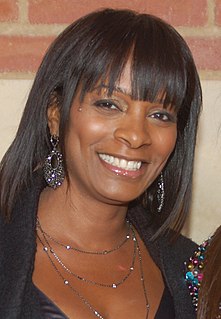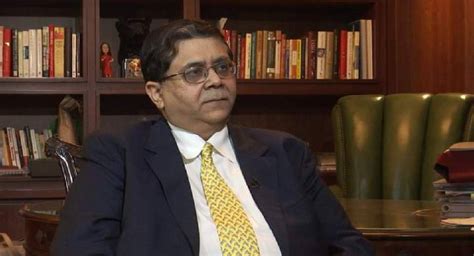A Quote by Uma Thurman
When asked if I consider myself Buddhist, the answer is, Not really. But it's more my religion than any other because I was brought up with it in an intellectual and spiritual environment. I don't practice or preach it, however. But Buddhism has had a major effect on who I am and how I think about the world. What I have learned is that I like all religions, but only parts of them.
Related Quotes
Many people entertain the idea that Christianity,like almost any other religion,is basically a system of beliefs-you know, a set of doctrines or a code of behavior, a philosophy, an ideology. But that's a myth. Christianity is not at all like Buddhism or Islam or Confucianism. The founders of those religions said (in effect), 'Here is what I teach. Believe my teachings. Follow my philosophy.' Jesus said, 'Follow me'(Matthew 9:9). Leaders of the world's religions said, 'What do you think about what I teach?' Jesus said, 'Who do you say I am?'(Luke 9:20)
I think there in a great deal to be said for religious education in the sense of teaching about religion and biblical literacy. Both those things, by the way, I suspect will prepare a child to give up religion. If you are taught comparative religion, you are more likely to realise that there are other religions than the one you have been brought up in. And if you are if you are taught to read the bible, I can think of almost nothing more calculated to turn you off religion.
I often say that I'm a Buddhist-Episcopalian. I say that partly to annoy people.I like to annoy people who think that a religion can contain the whole truth. No religion, it seems to me, contains the whole truth. I think it's mad to think that there is nothing to learn from other traditions and civilizations. If you accept that other religions have something to offer and you learn from them, that is what you become: a Buddhist-Episcopalian or a Hindu-Muslim or whatever.
I don't consider myself very principled. As a travelling musician, you have to adapt and adjust to different contexts every day. It is always difficult to connect preach and practice. For instance, I fly more in a year than I had hoped to do in my whole life. I eat what people serve me, not what I think is right. I tried writing songs that were principled, but always ended up contradicting myself when trying to convert the principles into practice. In fact, these days I try not to be too principled, but rather be pragmatic.
What is dangerous about the far right is not that it takes religion seriously - most of us do - but rather that it condemns all other spiritual choices - the Buddhist, the Jew, the Muslim, and many others who consider themselves to be good Christians. The wall of separation between church and state is needed precisely because religion, like art, is too important a part of the human experience to be choked by the hands of censors.
One thing I've learned in my career is that you don't have to answer people right away. I've learned how to say, "Can I get back to you about that?" Now I've given myself time to really assess what you asked me to do or what the situation is, think about it, then come up with a plan. Then by doing that, when I come back to you, it's not what I say it's how I say it.
The way of presentation is different according to each religion. In theistic religions like Buddhism, Buddhist values are incorporated. In nontheistic religions, like some types of ancient Indian thought, the law of karma applies. If you do something good, you get a good result. Now, what we need is a way to educate nonbelievers. These nonbelievers may be critical of all religions, but they should be decent at heart.
Think of how many religions attempt to validate themselves with prophecy. Think of how many people rely on these prophecies, however vague, however unfulfilled, to support or prop up their beliefs. Yet has there ever been a religion with the prophetic accuracy and reliability of science? ... No other human institution comes close.
I know that in many things I am not like others, but I do not know what I really am like. Man cannot compare himself with any other creature; he is not a monkey, not a cow, not a tree. I am a man. But what is it to be that? Like every other being, I am a splinter of the infinite deity, but I cannot contrast myself with any animal, any plant or any stone. Only a mythical being has a range greater than man's. How then can man form any definite opinions about himself?.
I love religion. I could make up religions all day. I sort of think that in an ideal world I'd like to be a religion designer. I'd like people come up to me and say, I need a religion. I'd go talk to them for a while, and I'd design a religion for them. That would be a great job. There's a need for people like that. Fortunately, seeing that one can't actually do it, I get paid for sort of making them up anyway.
The three religions because I wanted to discuss faith, not organized religion, so wanted to relativize organized religion by having Pi practice three. I would have like PI to be a Jew, too, to practice Judaism, but there are two religions that are explicitly incompatible: Christianity and Judaism. Where one begins, the other ends, according to Christians, and where one endures, the other strays, according to Jews.
When people ask the Dalai Lama, "Is Buddhism a religion?" he answers, "Yes, it is." Then they ask, "What kind of religion is it?" He responds, "My religion is kindness." You might think, "Everyone's is." Everyone's is. That's true. It's not complicated to describe the goal of a spiritual life. It's easier than you think to explain it. It's more difficult than you can imagine to do it.
India is developing a lot of soft power, and it's not just about us providing outsourcing and call centers to the world. We are providing a lot of thought and a way of life. I think we're also respected for fundamentally a non-violent belief thanks to our religious roots whether it's Hinduism, Jainism, Buddhism, we contributed more religions to the world than any part of the world and that's something which does find its way into how the world looks at it.


































